#and continued to learn by myself because i didn't have the budget to take lessons anymore
Text
i miss being able (to continue to learn) to play the violin.....
it was one of the very few things that let my brain shut off and lose myself in the movement and music... i miss that feeling
#à propos de rien#i had to sell mine for some quick cash when i was living in limbo those months between leaving london and moving up to scotland#managed to find myself a cheap electric one once i was up here#since i was living in shared flats rather than a house#and continued to learn by myself because i didn't have the budget to take lessons anymore#then my fucking health happened#and just holding up the violin in that fucking position is a nightmare nowadays#and that's not even mentioning holding the bow and sliding my fingers on the strings#thinking of maybe trying to go back to the piano once i have my own place again#'cause it's easier to accommodate my needs#with a keyboard 'cause i won't have the space or budget for an upright#but not sure if i'll have that same feeling i had with the violin#kit's#diary
5 notes
·
View notes
Text
Examples of my Classism & Elitism
Just helping @waywardequestrian back up her claims.
1) My accommodations for my horses growing up. My family had enough money to keep our horses on our property which consisted of dirt floor stalls so warped be repeated cleaning of wet spots over the years that I horrifically sprained my ankle in 2015 taking a misstep into one of the craters. Whenever I asked my parents about getting stall mats I was told that was too expensive and we couldn't afford it. I also had issues every year with the horses getting thrush and weak hooves from the foot-deep mud that made up about a 1/4 of the pasture (and was right outside the stalls) that existed about 1/2 the year since we live where it rains a lot. The two times my parents had enough money to buy me a truckload of gravel to try and fix it; it hardly made a dent and I was told they could only afford the one load.
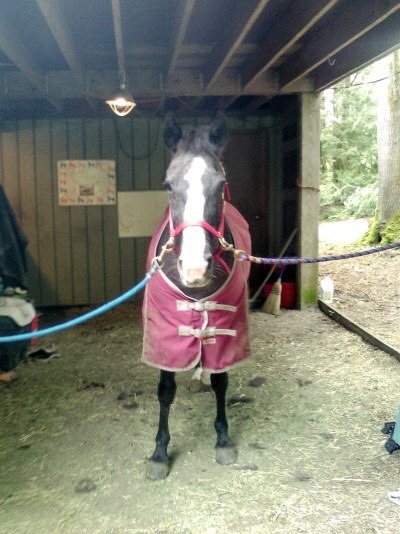
2) My "arena" growing up. It's an empty grass lot that's wider but shorter than a small dressage ring. It also was horrifically rocky. Whenever I asked if we could put sand down and I offered to do it myself if they just bought it for me I was told we could not afford that. I did my best trying to clear out the large rocks, diligently taking a big fence post pry bar out there to remove the big ones every few weeks, filling in with dirt and hoping that by doing that I was reducing the risk of my horse taking a bad step and being hurt. I was lucky though that my neighbor would periodically run his riding lawn mower through it to keep the grass low. I tried a few times to keep a temporary fence up but ultimately the blackberries would just eat it up anyway so over the years I lost more length and width to that. My horses learned uberstreichen from me ducking to avoid tree branches I was in a constant battle with.

3) My parents couldn't afford to buy us (I have a sister who rode for a while) our own horses, so for the first few years we were given our cousin's pony to learn on and share. Then my mom careleased an old retired WP horse for a bit before having to send her away because she had eye problems and we couldn't afford the medication. For 3 years we shared an Arab pony who was 4 when my mom bought her for less than $500. Eventually we landed with two careleased Arabs, one who was 21 when we started leasing her and one was 7 when we started leasing him. After looking after the gelding for 7 years, his owners announced they wanted to sell him. We couldn't afford what they asked and he was ripped from our family after 7 years of an spoken agreement that he would be ours permanently.
4) Our first year in USPC we couldn't take our horses to any of the lessons because our parents couldn't afford a horse trailer. When we did finally get a trailer it was so ancient that the tackroom floor was rotting out. I lived in constant fear my shitty little saddle would fall through and be lost forever during one of our trips to the twice monthly USPC lessons we went to.
5) When my parents finally were able to buy me a horse, our budget wasn't supposed to be over $1500, but my mom got an extra $500 by selling some of her personal tack for the Arab mare she bought 1 year before becoming pregnant with me. She'd bought that mare for $700 dollars and she had to ask my grandfather to loan her the money so she could buy her. Mia was $2,500 but my mom had fallen in love with her personality so she negotiated to pay for her monthly. She paid $150 a month for her and they only agreed because she was a broodmare they had sold to riding home, had to rescue her from it, resold her to another riding home and then had to rescue her from that, and they were trying to get her off the property to make room for the valuable horses.
6) This or some variation of this was what I looked like the majority of the time I was growing up. My boots were an extra wide calf because my dad had actually bought them for my mom. I'm a regular calf. I wore them until they literally came apart, took them to a cobbler to get a repair that lasted a bit, and then wore them completely through again. Whenever I had to walk on foot somewhere with them my socks would get soaked from the holes in them. My show coat was a boys sport's jacket we got at Goodwill. My saddle was a shitty and ancient Steuben that did not fit my horse, actively caused saddle sores, and which forced my leg so forward I battled a chair seat. But my mom got it for $100 and it's called an all-purpose so can't you just do dressage in it? I also didn't have access to private lessons. I got my twice a month group Pony Club lessons.
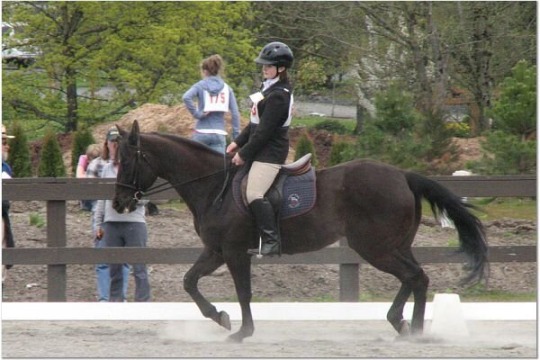
7) When I was 13/14 I got really serious about horses and wanting to progress. I had to beg my mom for about a year to get private lessons and the deal was that I could only have two a month on the opposite weeks of Pony Club. My sister had pretty much stopped riding by then so it was a lot more doable financially and my mom was finally working full-time. As it became obvious I didn't have the right saddle, the right arena at home, the right clothes; I had to work to get access to those things. I luckily had a knack for braiding and lived close to a prominent show ground; I worked the shows and made enough money to get a dressage saddle, to get boots, to even get as basic of things as stable wraps for my horse.
8) As a 15-16 year old I worked as a WS for a hunter/jumper trainer in order to get weekly lessons. She wasn't against me for not having a TB or a WB, she honestly put in a lot to make things work for us and really liked my horse--- she did however exlcude me from opportunities I couldn't afford. I couldn't afford to do the rated shows, so I didn't. The year she thought I could take the school horse for one show she passed me over for the girl whose mom would pay her. I would've worked it off but that wasn't good enough.
9) This is the horse I competed for 10 years. She's standing on a hill so you don't get the best picture of her confo and this as all I could drag up. Long backed, downhill, weak hocks. Not exactly the perfect dressage or jumping prospect. Between ages of 14-16, I developed a lot as a rider. One of my trainers through Pony Club saw this development as a great time to try and rip me from this sub-optimal mount and stick me on one of his horses I could lease because I wouldn't progress on this horse. He didn't want to work with a downhill, long backed APHA that was deeply under conditioned and not professionally trained for where I was starting to head. The emotional abuse I sustained from that trainer-student relationship still effects me. But how could I tell Mr. Watson that not only did I love this horse, but that we couldn't afford a different horse.
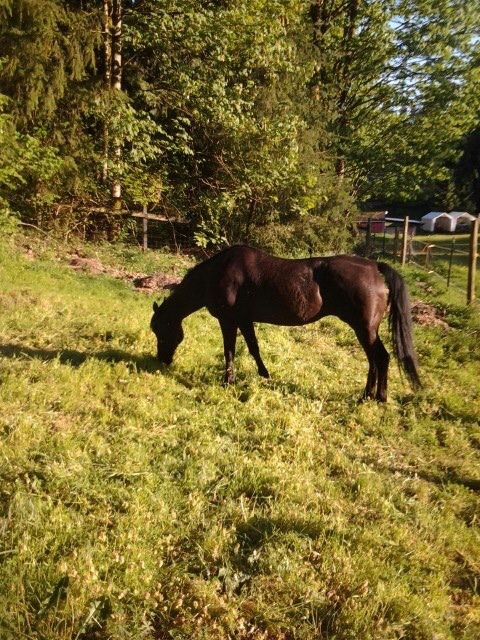
10) 14-16 were tough years for me mentally as an equestrian. While I had one supportive trainer I actually worked for and lessoned with; the presence of the other who continually rubbed it in my face that my horse wasn't meant for dressage and jumping made me fall into that "I'm an underdog" toxic mentality that I've been talking about on this blog for years. For as much fuel as deeply hating someone tellimg me what I couldn't do there was a greater presence of a "woe is me the world is biased against us" attitude. Any bad scores were "because the judge hates non-Warmbloods" and not because I had a horse that struggled with being on the forehand. Not placing well in jumping was because "I don't have as much money as they do" and not because my equitation was mediocre at best and I chipped-in to every fence.
11) I went about 6-9 months without professional training at all because I was so disillusioned with it (again, despite having had a trainer who was trying to work with me and my horse) and managed to sort some things out on my own given the foundation I'd received from the h/j trainer.
12) I took the very strong foundation that the one trainer who was there for me throughout that period gave me and took my embittered 17 year old self off to an "unconventional" "morally superior" trainer who would turn out to be an opioid addict with more bravado than talent. Thinking I was such a supremely talented but underrated rider, I didn't develop as much as I could have and I wasted a lot of money where I shouldn't have. I wanted to do rated shows (and actually the opioid addict wasn't the worst dressage trainer) but was actively discouraged because "they won't score you what you deserve it's a waste of money"--- not true. My opioid addict trainer also wanted to take credit for the development of my horse's canter (she used to cross-fire and be so strung out) but literally couldn't get that canter out of her when on her. Realistically, given the right opportunities falling into place I could have probably knocked out my Bronze and part of my Silver on that horse in high school.
13) I was only guaranteed my horse at college with me for one quarter at age 18 (even though board actually broke down to be way cheaper than keeping her at home). I worked a lot my initial stint at undergrad to get more opportunities with my horse. Too bad I was being abused, tried to kill myself, and had to drop out of college.
14) At 18 it's not illogical to expect you'll have to field all your horse's costs yourself. My mom had always said she'd take care of Mia until she passed though--- so she'd always have food and shelter. I did have to retire her early though because I couldn't afford hock injections. My lucky break was that my mom had purchased a horse for herself my sophomore year of high school who I had in high school been putting time into (spitefully not much because she wasn't suitable for my mother, but when I thought I might be able to convince my mom to sell her right before I left with my horse to college I put in a lot more effort and took her to schooling shows) who was sitting doing nothing but certainly sound.
15) This blog documents part of 5 years in which Chevy was my primary horse, an even less suitable APHA, and my struggles with not being able to afford lessons, clinics, shows. You'll find a lot of me working that horse in that shitty little grass arena because I couldn't afford to haul-in as regularly.
16) This blog also documents the extremely emotional traumatic ups and downs of my mom wanting to sell Chevy because she realized she was never going to ride her and me coming to grips with the fact that even if I could manage to afford to board her myself I would continue to be stuck making no progress. I desperately and fiercely love that horse and she was desperately and fiercely very wrong for me.
17) That's who I am. I'm the bobo backyard rider whose horses went years without floating their teeth or getting vaccines because we couldn't afford it. The girl whose horse was always tripping when we first got her because we couldn't afford a farrier who knew what they were doing, we could afford Rich who charged $60 for all three horses. The girl whose mom had to sell her own tack in order to buy me a horse. I'm not speaking from a place of privilege. I'm speaking from a place of knowledge, of experience, and of protection for all the other little girls who just want a pair of boots that fit them right.
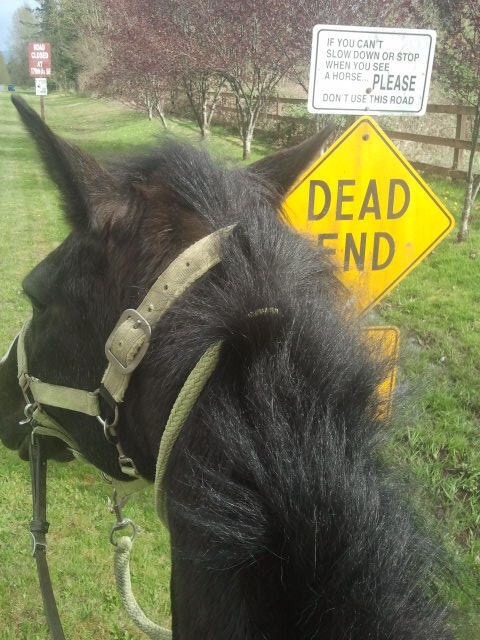
Don't you dare fucking presume to know me.
29 notes
·
View notes
Text
How this first-generation Mexican American college grad paid off her loans in just over two years.
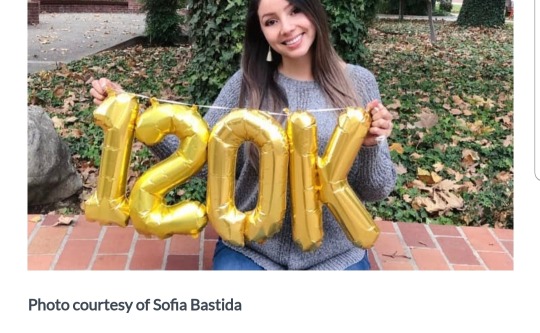
In an effort to help younger generations learn how to be debt-free and combat money taboo among the Latinx community, Sofia Bastida, a 24-year-old first-generation Mexican American, created @savingwithsofie. Through this platform, she shares her experience paying off $120,000 in student loans within the span of 26 months on an income below six figures.
Like many college students, Bastida wasn't aware of many of the basics of finance until she got into student loan debt and felt obligated to pay it off on her own. Without a college fund, Bastida took out federal student loans to attend Drexel University and a Parent PLUS loan to cover the large remaining balance of tuition, which ultimately became a big bulk of her debt load. Unaware of the impact that interest rates have on loans, it wasn't until her first payment was due that she realized how much her debt had increased in comparison to what she had initially taken out.
What started off as a Parent PLUS loan of $75,000 increased to about $90,000 — just while Bastida was in school.
Through her own research, Bastida learned about refinancing as a method to lower the interest rate of her Parent PLUS Loan. She also realized that paying off her loan as quickly as possible was the best way to go about paying less overall, rather than delaying the process, which allows for more interest to accrue. This became her motivation to develop a system to act fast.
The experience itself has taught her how to manage her expenses, and she's now motivated to help future generations of college students take control of their debt. Here are a few lessons she learned along the way.
Research and plan out your expenses
Refinancing student loans doesn't always make sense, but it did for Bastida. She was able to lower her interest rate from 7.8% to 4.98% with a private lender and therefore save thousands of dollars in interest.
Each month, Bastida made at least two loan payments immediately after she received each paycheck. "That way I wouldn't be tempted to spend the money on something I didn't need," she says.
Prior to refinancing, Bastida saved money in a savings account throughout her years in college and though she gave herself permission to tap into this pot of money while paying off her debt, she made sure to keep three months' worth savings in the account.
With a plan (and a healthy dose of urgency) to motivate her, Bastida went about getting her monthly expenses together. She paid less than $1,000 in rent living in Philadephia while sharing an apartment with her roommates. Then, when she landed a job as an early talent recruiter with TD Bank in New York, she managed to keep her rent cost the same by continuing to have roommates.
As for the other expenses, Bastida is a bargain shopper. She worked to keep her fixed expenses low by finding deals on clothes and goods and searching weekly ads. She walks and takes the subway whenever possible to avoid ride-sharing costs and meal preps instead of spending money for lunch. For her social life, Bastida opts for free outdoor meet-ups with friends, making sure they are on board with helping her stick to a budget.
Take accountability of yourself and your debt
Bastida knew she wanted to attend a private university out of state for her own independence. Although unaware of how much the debt would build up throughout the years, she understood it was a challenge she had to face.
"While it's very overwhelming having such a high debt amount, I learned that I am the one who chose to take out those loans and therefore, I must take accountability for those choices I made when I was younger," Bastida says.
But accountability doesn't mean doing it all alone. Debt can take a major toll on your mental health, and it's important to reach out and find support. For Bastida, one of the most important aspects of paying off her debt was being her own cheerleader and having her mother and close friends encouraging her throughout the process.
"Being in debt did take a toll on me when I first graduated from college. I felt stuck and hated hearing negative things from people. I quickly learned that tackling six-figures wasn't going to happen overnight and it sure wasn't going to be easy if I kept allowing myself to hear the negative things others would say."
Don't stop there
Bastida found that there's more to learning about finances than what's taught to you in school and that there are plenty of others who are sharing their knowledge in the space. As ambassador for Snowball Wealth, a platform designed to help those with student debt develop a system to pay off their loans based on their financial background, she continues to share her journey with others.
Just recently, Bastida landed a new job as associate campus recruiter for Black Rock. She wrote on her Instagram account that this came as a result of sharing her successes on LinkedIn — she also managed to negotiate a 30% increase to her base salary. Her goal continues to be teaching others about finances and how they can develop generational wealth.
"Now that I'm done with the loans, I'm keeping my strategy the same in terms of me living below my means and essentially just investing the rest, because I do hope to reach F.I.R.E," she said. "I don't know if I want to retire early because I do enjoy what I do, but I think building wealth is what I like, especially because in my family that doesn't exist."
0 notes
Text
I Didn't Have Enough Love to Stay.
Love is uncomfortable. Showing the type of sacrificial love that Jesus' expects of us is a challenge because it taxes our very ability to give away something that we so desperately desire to have for ourselves. We are to love first without the expectation of love in return, but we can freely admit that we need to be loved as well.
There are seasons in life that place us in an uncomfortable tension between needing love and giving love. I will attempt to talk through a painful time in my life where I made a choice simply because I did not have enough love to give.
In Brett McCracken's book Uncomfortable: The Awkward and Essential Challenge of Christian Community, the author is talking about demonstrating Biblical levels of love. The main illustration is unsurprisingly the commitment to marriage. But Brett drops the following lines, and in what seems like an afterthought, I grasped one of the missing pieces of a big moment in my life.
Here is what he said,
"The uncomfortable principle at the core of both issues is that love requires sacrificing the sovereignty of our feelings. Love cannot survive on the basis of emotional satisfaction. It is covenantal. And this is a hard truth to stomach, because it requires faithfulness even when we’re not feeling it, even when our “heart isn’t in it.” This doesn’t just apply to marriage. It’s also true for the way we love our friends, our parents, our children, our neighbors. A single young man might feel restless in his present community and be tempted to abandon it for a new job or opportunity across the country, but for the sake of a commitment-based love for his friends, he stays. A teenage girl might feel frustrated by her parents and tempted to break the rules they’ve established, but her commitment-based love leads her to honor them instead. A mom might dream of saving money to launch a business, but her commitment-based love leads her to instead use that money to pay for her son’s college tuition. A volunteer after-school tutor might grow weary with a student’s lack of progress and be tempted to quit, but his commitment-based love leads him to keep working with the student. Cruciform love doesn’t always feel rewarding and it doesn’t always look like progress. But it does look like sacrifice and servanthood. Which is to say, it looks like Jesus (Mark 10: 42– 45; John 13: 1– 17)." -- McCracken, Brett. Uncomfortable: The Awkward and Essential Challenge of Christian Community (pp. 86-87). Crossway. Kindle Edition.
I was working in a church that I loved with people that I loved. It was a vibrant and challenging community that was actively bringing hope to hopeless people. But somehow my wife and I lost track of each other. We drifted apart...
As my marriage crumbled I swiftly approached my personal breaking point. Every nerve was perpetually raw. I vividly remember sitting on the floor of a bathroom stall in the school we were renting weeping uncontrollably. I suddenly found myself feeling just like the people we as a church had vowed to reach - hopeless.
With a nervous breakdown inevitably approaching I did the most unhealthy thing a pastor could do - I threw myself deeper into the work. Ignoring my real feelings, I funneled the anxious energy of uncertainty into "ministry," if you could even call it that. My senior pastor even beamed at how productively awesome I was doing. I had everyone fooled, I guess.
Now, I'll fast forward a bit and tell you that my wife and I made it out ok. We are happy now and we have finally learned how to love each other. Hard learned lessons are the best lessons.
In order to get to the point where my wife and I could recover, I had to make a difficult choice.
I had to leave the best job I ever had.
I didn't have enough love for both.
To be good at your job you have to love it to some level. To do the work of the ministry as Jesus did we have to have supernatural levels of love.
Love is a muscle that needs to be developed. The exercise of love enables us to love more. What I realized soon during the tumultuous season addressed above is that I did not have the capacity to love both the people of the church and my wife.
I had faked it pretty well. When I was channeling the fear of losing my wife into "good ministry" I had everyone faked out, but I knew deep down inside that what I was doing was unsustainable. If I had continued I would have lost my wife, the church, and probably my self.
I began to pray that God would let me leave my position in the church I was serving. It was a cry of surrender that I couldn't do it anymore. It was an admission that I didn't have the ability to love (or to receive love).
After 4 months of praying and counseling, I resigned. This was the second saddest day that I have lived. Not a day goes by that I do not think of the church and the people I worked with. I know that sounds cliché, but it is true. My thoughts are mixed with regret and joy, what-ifs and thankfulness. I am profoundly happy that my family has made it through, but I reflect with sadness on what might have been.
It is hard to admit that I am limited in any capacity. It is the stubbornness that serves me well to the top and bottom of life. But the uncomfortable truth is simply this: At the time, I did not have enough love to be a minister and husband.
Now some people reading this will inevitably say that I turned my back on Jesus because I chose my wife over the ministry work. I put my hand to the plow and then looked back making me unfit for the kingdom of God. Maybe so. I won't truly know until I get to the pearly gates and look Jesus in the eye. But I can confidently say that the whole experience has greatly increased my ability to love others in the right way.
What is the right way to love others? By committing to them on a personal level. By learning how to love someone who caused me great pain with her actions, I can love others more deeply.
Sometimes in the work of the church we commit more to mission than to people. We commit to a leaders vision instead of to each other. How shallow our Christian experience becomes when we commit to something instead of someone. Loving a things like visions, commands and missions are just materialism wrapped up in leadership speak. We think that these things will lead to joy, but they never do. The person of Jesus and the fellowship of the Church (that is, God's people, not an organization) is what brings joy.
I've also learned that I have to budget my commitments. I can't commit to loving too much beyond my capacity. If I do then I will inevitably neglect another commitment that I have. We must be stretched in our commitments to love others, but be wise enough not to take on so much that we succumb to overwhelming demands that our commitments of love will place on us.
Leaving the job I loved the most actually allowed me to learn to love more honestly, deeply, and sincerely. It has increased my capacity to love and serves as a reminder that loving people is always more important than loving an organization - no matter how good of an organization it is.
About the Author | Josh Schaidt
Twitter – Facebook – Instagram I love cookies and I still buy music one album at a time. @EmptyChurch is one way I live empty, talk faith, and opt in to follow Jesus.
Please remember our Rules For Discussion when commenting.
1 note
·
View note